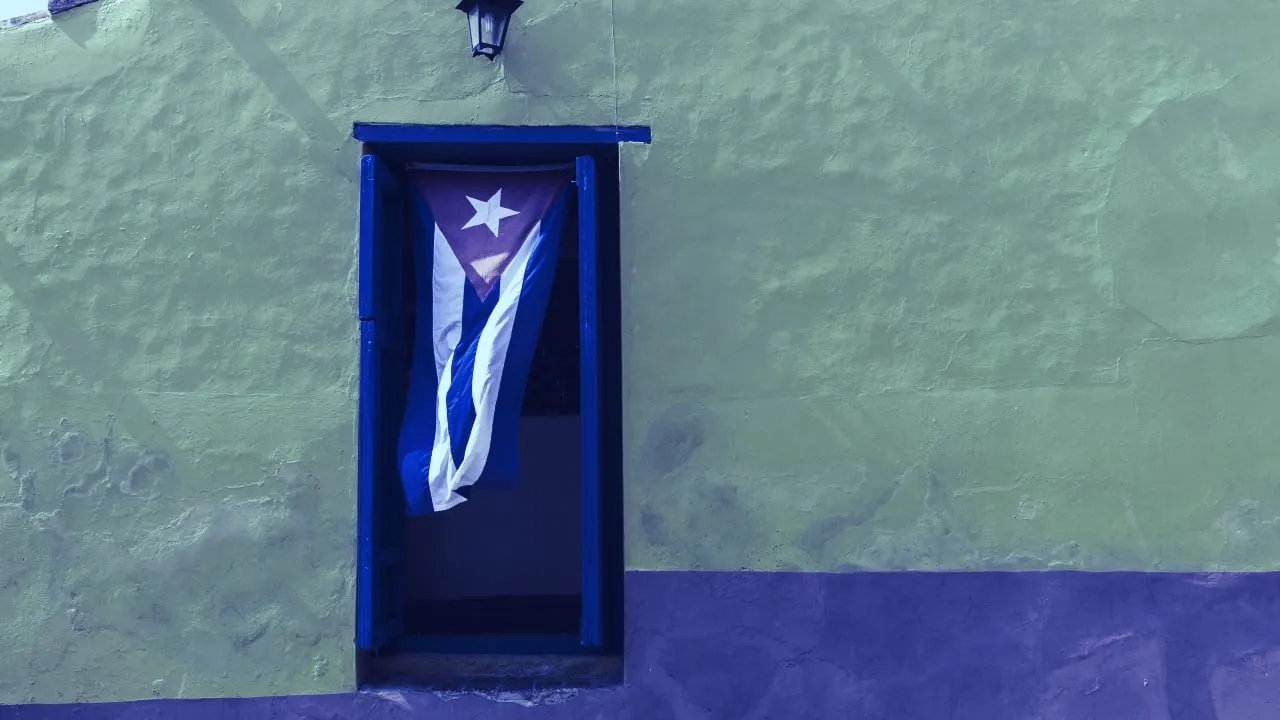In brief
- The man behind the Qbita Bitcoin wallet has developed a peer-to-peer exchange custom built for Cuba.
- The exchange comes built in with the ultra-lightweight wallet, which requires relatively little data space and bandwidth to use.
- Developer Mario Mazzola is already looking ahead, with plans to integrate business solutions next.
What do Bitcoin and Cuba have in common? Resilience.
Despite the blockades, embargoes and financial sanctions that have hit the island nation, the people of Cuba have shown to be adept at overcoming obstacles. And one resident of Cuba, in particular, is doing exactly that for crypto on the island.
Earlier this month, Mario Mazzola, the creator of the ultra-lightweight Bitcoin wallet Qbita, launched the Qbita Exchange, the first decentralized Bitcoin exchange of its kind in Cuba.
While crypto isn’t illegal in Cuba, there is no regulatory framework for it either. This combined with US sanctions, poor Internet service, and other restrictions has meant that the largest and most important crypto exchanges and wallet providers in the world avoid Cuba altogether. So Mazzola has taken it upon himself to develop an all-in-one crypto ecosystem on his own: a Bitcoin wallet, payments platform, and, now, a peer-to-peer exchange.
"I created Qbita Exchange because I have always been convinced that here, in Cuba, Bitcoin is a real necessity," Mazzola told Decrypt. And in order for Cuba to catch up to other parts of the world, the country “needs tools to buy, sell, use and store Bitcoins easily and safely,” he said. "Qbita solves all these problems," Mazzola claims.
The Italian-Cuban crypto entrepreneur first launched the Qbita wallet last November. It’s designed to work anywhere in the world, but it is especially meant to meet the needs of data-strapped Cubans. The wallet’s installation only requires roughly 1MB of hard drive space and relatively little bandwidth.
That wallet now supports a built-in peer-to-peer Bitcoin trading platform, allowing its Cuban users to trade BTC from within their wallets in a secure, decentralized manner with full control over their funds.
Qbita evolves into a P2P trading platform
Mazzola said that while other P2P exchanges such as Paxful and LocalBitcoins have similar services, neither is particularly good for Cubans.
“Of course, there are other platforms in the market like Paxful and Localbitcoins, both are models for us, but each of them has a little problem,” he said. “Paxful is actively blocking Cuba, LocalBitcoins is asking you for KYC, and because of the embargo, this legal requirement is not helping the people of the island, so it is not available in our Country.”
Mazzola pointed to other P2P options in Cuba, such as CubaCoin and Fusyona, but said these often come with various technical limitations.
Qbita, on the other hand, works by creating a multi-signature address controlled by the buyer, the seller, and the platform, according to Mazzola. If the trade goes well, both the buyer and the seller sign the transaction, which is executed instantly. If something goes wrong, the parties send their evidence to Qbita which signs in favor of the rightful owner, immediately executing the transfer.
Mazzola explained that, despite initial skepticism, the wallet's acceptance and popularity as a p2p trading platform has increased considerably. "About a week ago, we had about 850 registered downloads. We launched the exchange and downloads reached 1,100. This is about a 30% increase in one week," he said.
A one-man crypto ecosystem
Qbita's growth has come strictly from word of mouth, said the Cuban entrepreneur.
"We've invested zero in advertising," he said. And he’s only just getting started.
The Qbita developer is currently building a payment gateway for businesses that would like to begin accepting cryptocurrency. The initiative has yet to take flight, he said, because e-commerce is still in its infancy in Cuba.
Remittances, however, are another story. "Qbita is the perfect platform to process remittances, and I'm not saying that the math says so," Mazzola said. "If we compare Qbita to Western Union, a Cuban American sends 100 USD from the United States to his wife in Holguin and she will receive about 95 CUC [Cuban convertible pesos]."
But if the transfer were instead done in Bitcoin, he explained, and the recipient sold it upon arrival, that person would see a net gain from the transaction, because Bitcoin is sold at a premium in Cuba.
And despite these difficult times for most of the world, Mazzola said he’s optimistic for the future of both Cuba and crypto.
“I think that in the future we're going to see fewer people coming to crypto just to make some easy money,” he said. “We're going to see more people using Bitcoin for its true purpose: the freedom to move money and to have total control of your funds."

